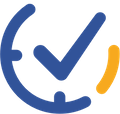Hey there, fellow remote workers! 👋 As someone who’s been navigating the work-from-home life for a while now, I’ve learned a thing or two about staying productive and sane in this digital age. Let’s dive into some game-changing strategies that have changed my remote work experience – and might just revolutionize yours too!
1. Self-Care Routine
Remember the days of rushing out the door, barely awake, clutching a travel mug of coffee like it was your lifeline? Well, those days are behind us, my friends. One of the biggest perks of remote work is the opportunity to start your day on your terms. A solid morning routine can set the tone for a productive and positive day.
Here’s a peek into my current morning power-up sequence:
– 6:30 AM: Wake up to the gentle sounds of my sunrise alarm clock (game-changer!)
– 6:35 AM: 10-minute meditation using the Headspace app
– 6:45 AM: Whip up a green smoothie (current fave: spinach, banana, almond milk, chia seeds, and a scoop of plant-based protein powder)
– 7:00 AM: 20-minute yoga session (YouTube has a treasure trove of great routines)
– 7:25 AM: Shower and get dressed in real clothes (no pajamas allowed in this home office!)
– 7:45 AM: Quick journaling session to set intentions for the day
– 8:00 AM: Ready to tackle the workday!
Pro tip: Treat yourself to some little luxuries that make your morning routine feel special. For me, it’s a fancy shower gel, a luxurious face mask once a week, and a high-quality tea or coffee. These small indulgences can change your morning routine from a chore to a cherished ritual.

2. Move It or Lose It: The Importance of Physical Activity
Confession time: In my early days of remote work, I once spent an entire week barely leaving my desk chair. The result? A stiff neck, sore back, and a serious case of brain fog. Never again! Now, I’m a firm believer in the power of movement to boost both physical health and mental clarity. I’ve found my fitness tracker to be an invaluable tool, gently reminding me to move every hour.
Here are some of my favorite quick-break activities:
– Desktop yoga: The Office Yoga YouTube channel is a goldmine for short, effective stretches you can do right at your desk.
– Dance party for one: Nothing beats a 3-minute dance break to your favorite upbeat song. (Currently obsessed with “Blinding Lights” by The Weeknd)
– Neighborhood exploration: A brisk 10-minute walk around the block, preferably leaving your phone behind, can do wonders for clearing your mind and refreshing your body.
– Home workout snacks: Keep some light dumbbells or resistance bands near your desk for quick strength training breaks.
The goal isn’t to run a marathon in the middle of your workday. It’s about consistent, small movements that keep your body happy and your mind sharp.
3. Creating Your Dream Home Office
Your workspace can make or break your WFH experience. I learned this the hard way after weeks of working from my couch (hello, terrible posture and constant distractions). Here’s how I changed a corner of my living room into a productivity paradise:
– Invested in a standing desk: This has been an absolute game-changer for my energy levels and posture.
– Added a pegboard for organization and inspiration: It’s filled with post-its, a calendar, motivational quotes, and a rotating gallery of my kids’ artwork.
– Brought in some green friends: My desk plants, Jack and Diane (yes, I name my plants!), add life to my workspace and help purify the air.
– Created a “Zoom corner” with good lighting and a professional background: No more scrambling to find a presentable corner for video calls!
– Ergonomic additions: A supportive chair, footrest, and ergonomic keyboard have made long work sessions much more comfortable.
– Mood lighting: A small lamp with warm light helps create a cozy atmosphere during early morning or late evening work sessions.
Your workspace should inspire you and reflect your personality. For me, that meant adding a small vision board, a collection of inspiring books within reach, and a rotating display of family photos. Don’t be afraid to get creative and make your space truly your own!

4. Remote Communication Essentials
In the office, you could swing by a colleague’s desk for a quick chat or read the room during a meeting. Now? It’s all about mastering the art of digital communication. Here’s what works for me and my team:
– Daily stand-up meetings via video call: We use Zoom, but there are tons of options out there. These quick check-ins help us stay aligned and connected.
– Slack for quick questions and water cooler chat: We have different channels for work-related discussions, as well as a #random channel for sharing memes, pet pics, and general banter.
– Weekly one-on-ones with my manager: These help us stay aligned on goals and address any challenges that come up.
– Monthly virtual team building activities: From online escape rooms to virtual coffee dates, these help maintain team cohesion and culture.
– Clear communication norms: We’ve established guidelines for response times, the use of different communication tools, and how to signal when we’re in deep focus mode.
Pro tip: Don’t underestimate the power of GIFs and emojis in bringing some personality to your digital interactions! 😎 They can help convey tone and add a touch of fun to your messages.

Boundaries and Work-Life Balance
One of the biggest challenges of remote work is maintaining a healthy boundary between work and personal life. When your office is just a few steps away, it’s all too easy to fall into the trap of being “always on.” Here are some strategies I’ve found helpful:
– Establish a consistent schedule: Try to start and end your workday at the same time each day.
– Create a shut-down ritual: I end each day by reviewing my accomplishments, planning for tomorrow, and shutting down my computer.
– Designate a workspace: As much as possible, try to keep work confined to your designated office area.
– Use technology to your advantage: Set up “Do Not Disturb” modes on your devices outside of work hours.
– Plan activities after work: Having something to look forward to can help you disconnect from work mode.
Being available 24/7 doesn’t make you a better employee – it makes you a burnt-out one. Your time is valuable and necessary for long-term productivity and job satisfaction.
Continuous Learning and Skill Development
One of the great advantages of remote work is the flexibility it offers for personal and professional development. I’ve made it a priority to dedicate time each week to learning new skills or deepening existing ones. Some ways to do this:
– Online courses: Platforms like Coursera, Udemy, and LinkedIn Learning offer a wealth of courses on various topics.
– Virtual conferences and webinars: Many industry events have gone digital, making them more accessible than ever.
– Reading: Set aside time for professional reading, whether it’s industry blogs, books, or research papers.
– Skill-sharing with colleagues: Set up virtual lunch-and-learn sessions where team members can share their expertise.
Investing in your skills not only makes you more valuable to your company but also keeps your work engaging and fulfilling.
Reflection and Adjustment
The beauty of remote work? You can constantly tweak and improve your setup. I’ve made it a habit to do a monthly “WFH audit” where I ask myself:
– What’s working well?
– What’s causing stress or frustration?
– What’s one thing I can try to improve next month?
This practice has led to some of my best WFH discoveries like noise-canceling headphones for deep focus sessions and a “wind-down” playlist to signal the end of my workday.

There’s no one-size-fits-all approach to remote work. It’s all about finding what works for you, being open to change, and celebrating the small wins along the way. The key is to view your remote work setup as a work in progress – always evolving and improving. As we navigate this new world of work, let’s embrace the opportunities it presents for greater flexibility, improved work-life balance, and personal growth. With the right strategies and mindset, you can do more than just survive remote work – you can thrive in it.
Now, if you’ll excuse me, it’s time for my afternoon dance break. 💃🕺 We’re all in this together, even when we’re apart. Here’s to making the most of our remote work adventure!




